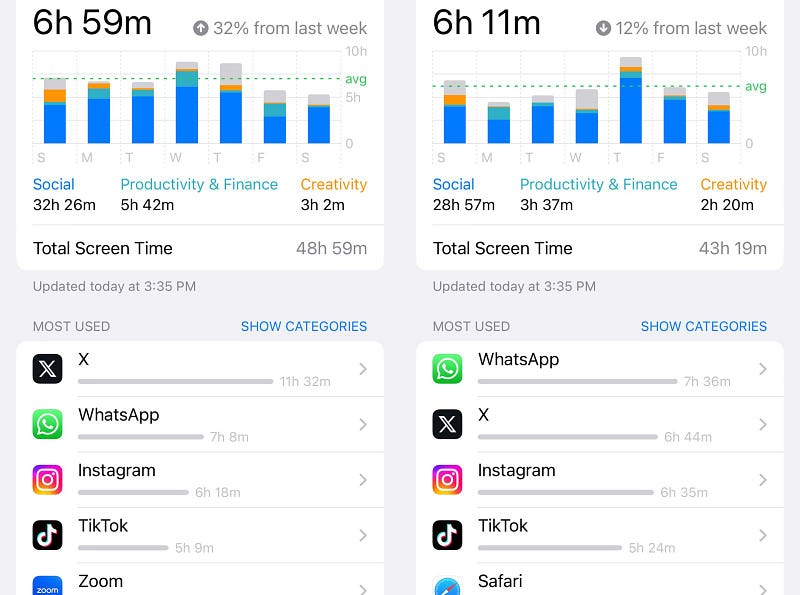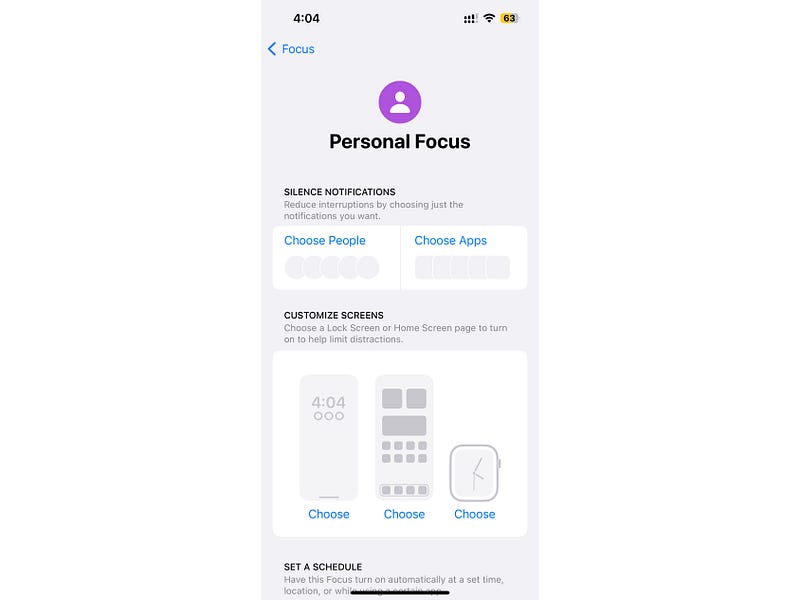Finding Happiness Beyond Your Smartphone: A Guide to Focus
Written on
Chapter 1: The Smartphone Trap
I received my first smartphone at the age of 13, and I vividly recall the joy it brought me. No longer would I have to part ways with my friends or rely solely on my parents' computer; I could now be online all the time. This marked the beginning of my constant smartphone usage. I carried it with me everywhere—school (despite it being prohibited), church, even the bathroom. It was never far from my side; it was as if I had become a mere extension of the device.
Over time, I found myself increasingly dependent on my phone. Even when it was inappropriate to use it, I often did so, convinced that I could manage without taking breaks. Proud of my ability to escape the consequences, I didn't realize the toll it was taking on my focus and energy. By the end of the school day at 4 p.m., my attention span was shot, leaving me unable to complete chores or homework. Dinner would come and go, followed by endless scrolling on my phone until I drifted off to sleep. I later understood that my overstimulation left me unable to concentrate, which is why early mornings became my only productive time.
How I Came to Terms with My Phone Addiction
This year, several eye-opening events made me recognize the severity of my phone addiction. Here are a few that particularly struck me:
Documenting Experiences Instead of Living Them
One of my dreams was to take a helicopter ride in New York City. When the opportunity finally arose, I was seated in a position that wasn’t ideal for social media photos. The inability to share the experience online dampened my spirits, making me realize I was missing out on the joy of simply living in the moment.
Driving Concerns
My family was hesitant to let me drive on road trips, which nearly led to an accident. I used to think my boyfriend was being overly cautious, but I later understood it was a matter of safety, stemming from my distracted nature.
Being Present for Family
When my aunt underwent surgery, my family didn’t want me involved due to my constant phone usage. This realization hit hard; I was distancing myself from those I loved.
Not Gaining Trust
With my brother’s newborn, my family felt uncomfortable leaving me alone with the baby, fearing I might prioritize my phone over the child’s safety. These experiences made me aware that I needed to change.
I craved to live a life outside my phone and regain the trust of those I cared about. If you resonate with my journey, here’s how I began to tackle my phone addiction and reclaim my life.
The first video titled "How to Be Happy Again (1/3): 4 Habits to be Happier in 1 Month" offers valuable habits to enhance your happiness over a month.
Step 1: Identify and Eliminate Harmful Apps
To regain control over my life, I started by examining the apps that consumed my time. I often justified my usage by claiming I was working, but upon reviewing my screen time, I discovered most apps were social media-related. By accessing "settings -> screen time" on my iPhone, I could see my daily and weekly usage.

The bulk of my time was spent on social media platforms that offered little productivity. To combat this, I deactivated my accounts and deleted the apps entirely. I also limited notifications for essential apps like WhatsApp and Zoom using Focus, an iPhone app that helped me manage distractions.

Step 2: Create Phone-Free Zones
Next, I made a conscious effort to stop taking my phone everywhere, particularly to places where it wasn’t necessary. This began at home; I no longer kept my phone near me while sleeping or in areas like the kitchen and bathroom. Initially challenging, I soon realized I could focus better without the constant presence of my phone.
I also began to rise earlier in the day, which allowed me to accomplish tasks without the usual morning scroll. My interactions with my mom improved significantly; she appreciated my undivided attention during our conversations.
Step 3: Embrace Boredom
Modern society often fears boredom, prompting us to reach for our phones at the slightest hint of inactivity. I found myself struggling to enjoy activities that didn’t provide instant gratification, like watching a long-awaited movie. To combat this, I had to learn to tolerate boredom, accepting it as a part of life.
As Meg Panozzo points out, embracing boredom can lead to a more fulfilling life. This step proved to be difficult as it highlighted my dependence on my phone, but with patience, I learned to simply sit with my thoughts.
Step 4: Discover Fulfilling Hobbies
Once I became comfortable with boredom, I sought out new hobbies that I had previously dismissed due to a perceived lack of time. One enlightening video, "So you deleted social media, now what?" by Reece Daniels, discusses how individuals often feel lost without their phones. However, many discover they have ample time to pursue meaningful activities.
For me, I reignited my passion for reading, started assembling puzzles, and enrolled in programming courses to further my career.

Eliminating social media allowed me to focus better at work, giving me more time to devote to my business and personal projects.
Step 5: Reintroduce Social Media Mindfully
Some apps can be beneficial when used in moderation. Once I felt secure in my ability to live a life outside my phone, I allowed myself to reintroduce one or two social media platforms. A close friend of mine successfully navigated this process by using Instagram solely for family updates and personal connections, reminding himself of the importance of moderation.
Final Thoughts
Creating a life beyond our smartphones is essential for maintaining our sense of self. My phone addiction had eroded the trust of those around me and left me unable to focus. By recognizing the overstimulation caused by constant connectivity, I was able to make significant changes.
Initially, I experienced anxiety when I wasn't glued to my phone, fearing I might miss something important. However, as I regained my focus, I found joy in completing tasks more efficiently, engaging in meaningful conversations, and appreciating small moments.
The time saved by stepping away from social media has allowed me to invest in my business and personal growth. It's clear that for those of us not earning a living from social media, it can often be a time sink. Consider taking a break to rediscover your real life and what truly matters.
Don't forget to subscribe to my email list for more insights.